
The 8thForum on Finance and Investment: Law and Practice
Solutions of International Investment Arbitration Successfully Held
Publish time: Thu May 04 14:48:10 CST 2017 Contributor:Xiaoxiao Ma
On April 25 2017, the 8th Forum on Finance and Investment: Solutions of International Investment Arbitration organized by the Beijing Arbitration Commission / Beijing International Arbitration Center (the “BAC”) was held successfully. The BAC invited Professor Albert Jan van den Berg, leading expert of the international arbitration industry, and Teresa Cheng SC, BAC arbitrator, to act as the keynote speaker and the commentator, respectively. Moderated by Dr. Chen Fuyong, Deputy Secretary General of the BAC, they provided impressive sharing of topical issues within the international investment arbitration and solutions thereof. Mr. Lin Zhiwei, Secretary General of the BAC delivered an opening address on behalf of the hosting institution.
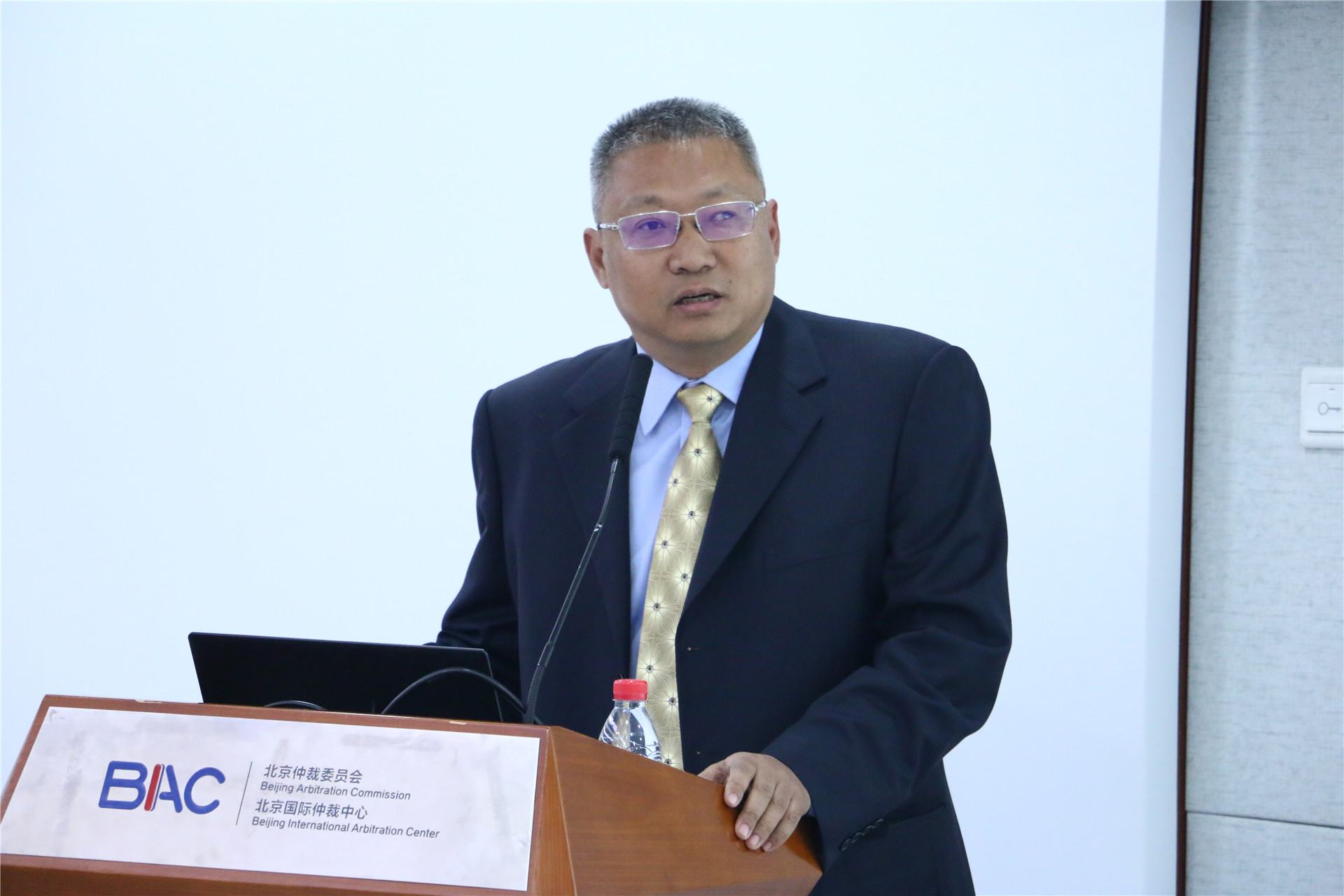 |
 |
|
Mr. Lin Zhiwei |
Dr. Chen Fuyong |
With the transformation and upgrading of China’s economic structure and the increase of export and investment oriented transactions, especially under the historical background of the “Belt and Road” Initiative and the “Free Trade Zone” reform, more and more Chinese entities have been engaged in international investment arbitrations. And because of this, Mr. Lin Zhiwei conclude that “it has become a hot topic within the Chinese arbitration circle as to how to better apply the rules of international investment arbitrationto protect the vital interests”. Dr. Chen Fuyong also pointed out that by way of organizing such colloquia on investment arbitration, the BAC looks forward to strengthening the exchange and sharing in this field and enriching the expertized knowledge and experience of Chinese practitioners.
Prof. van den Berg started his speech from the Yukos case. By introducing the original background and the issues of jurisdiction and applicable law in this case, he interpreted the origin and solution of international investment arbitration based on his own practice. Prof. van den Berg said that the emergence of Yukos case has a close tie with the then international political and economic background. Either the award ruling that the Russian Federation shall pay compensation to former Yukos shareholders rendered by the arbitral tribunal administered by the Permanent Court of Arbitration, or the ruling of the Hague District Court setting aside the Yukos arbitral award for lack of jurisdiction, has shown that international investment arbitration has more challenges in comparison with international commercial arbitration. Prof. van den Berg thought that in international investment arbitration, neither the parties nor the tribunal should have “the presumption of jurisdiction”, but should “stick to the details of the case”, and determine what law or convention is to be applied on the ground of facts, so as to proceed with the arbitral proceedings. Meanwhile, neither the secretary of the arbitral tribunal nor the arbitrator’s assistant could replace the roles of arbitrators in a number of aspects. And arbitratorscould not leave the jobs that should be done by themselves to the secretary of the arbitral tribunal or their assistants. To prevent the occurrence of disputes and to ensure the validity of awards, in international investment arbitrations, it is necessary for the tribunal to seek and obtain the parties’ consent with respect to the scope of work and content of the secretary of the tribunal and arbitrator’s assistant.
In addition, Prof. van den Berg raised his suggestions on how China could raise its voice within the international investment arbitration circle. He thought that despite there are not too many investment arbitrations, such cases require participants’ investment of huge amount of time, energy and cost. This not only requires that China has a number of expertized professionals practicing in investment arbitration, but Chinese courts should also be sufficiently prepared to act as the courts of the seat of investment arbitrations.
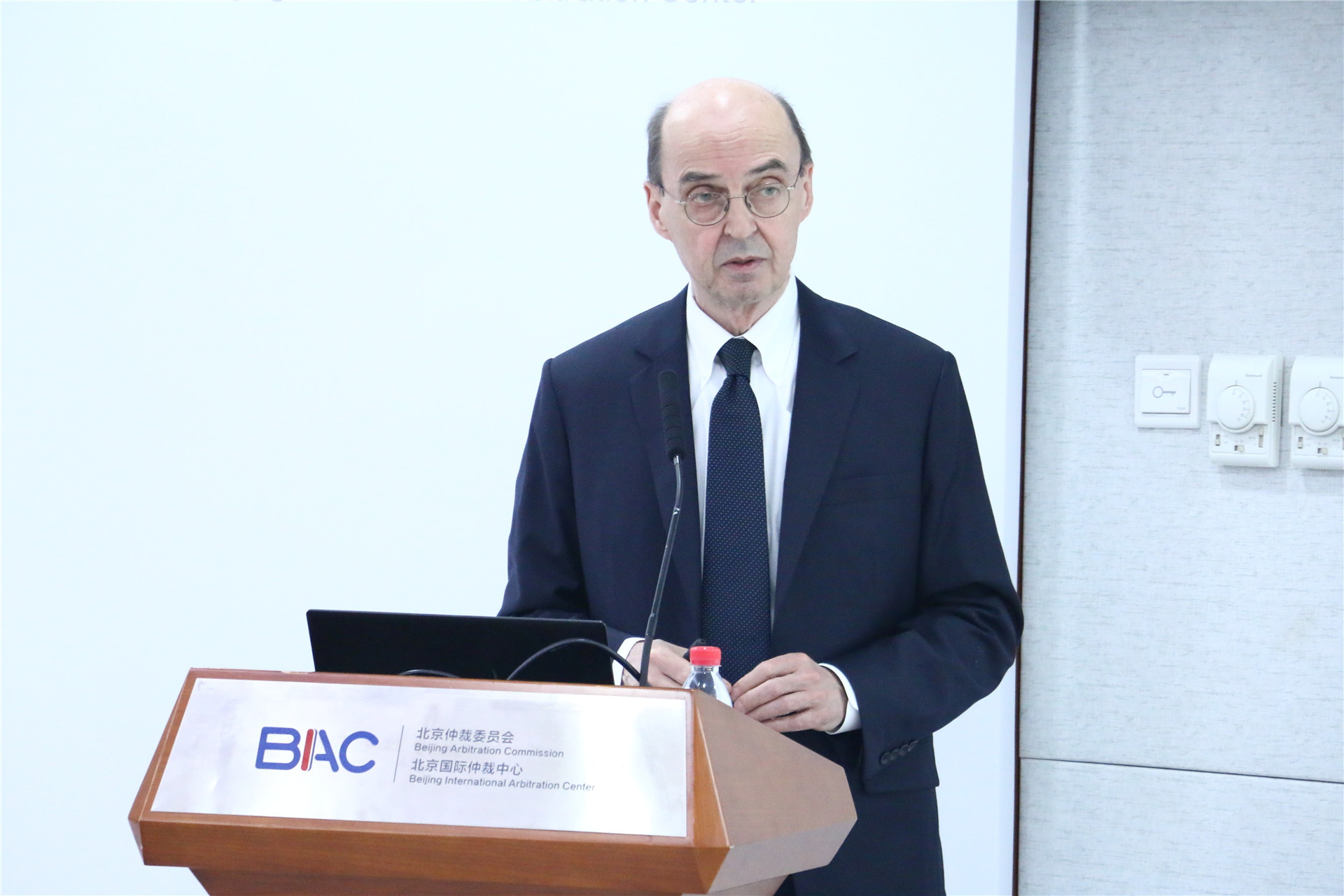 |
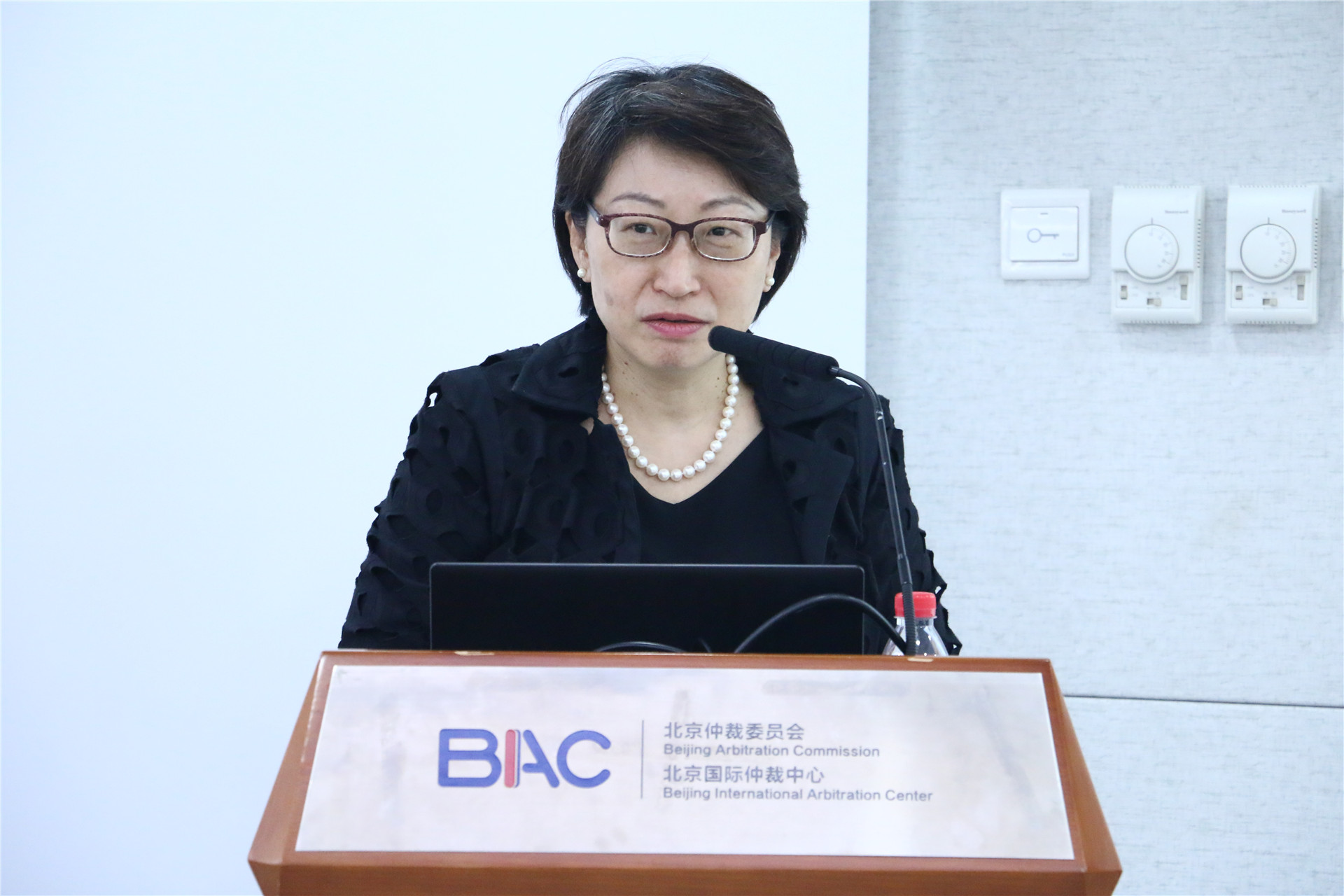 |
|
Prof. van den Berg |
Teresa Cheng, SC |
Teresa Cheng, SC mentioned in her comments that the result of international investment arbitration not only affects the international reputation of the members of the arbitral tribunal, but is in the core interest of the parties. Thus in determining the amount of compensation, the arbitral tribunal has necessity to conduct an exhaustive investigation to have the ground of finding the most proper figure. Meanwhile, the tribunal should deliberate the case from an overall perspective, and also “pay attention to the specific case details, in particular the core issues in dispute between the parties”. Teresa Cheng, SC fully agreed with Prof. van den Berg on the jurisdiction of investment arbitration. She was also of the opinion that with regard to disputes between investors and host states, arbitral tribunals should not neglect the limits on jurisdiction because of the remuneration they might receive or their professional interest in the disputed case, but should make sure they have proper jurisdiction over the case, and make determinations on jurisdiction of the arbitral tribunal more carefully and more cautiously.
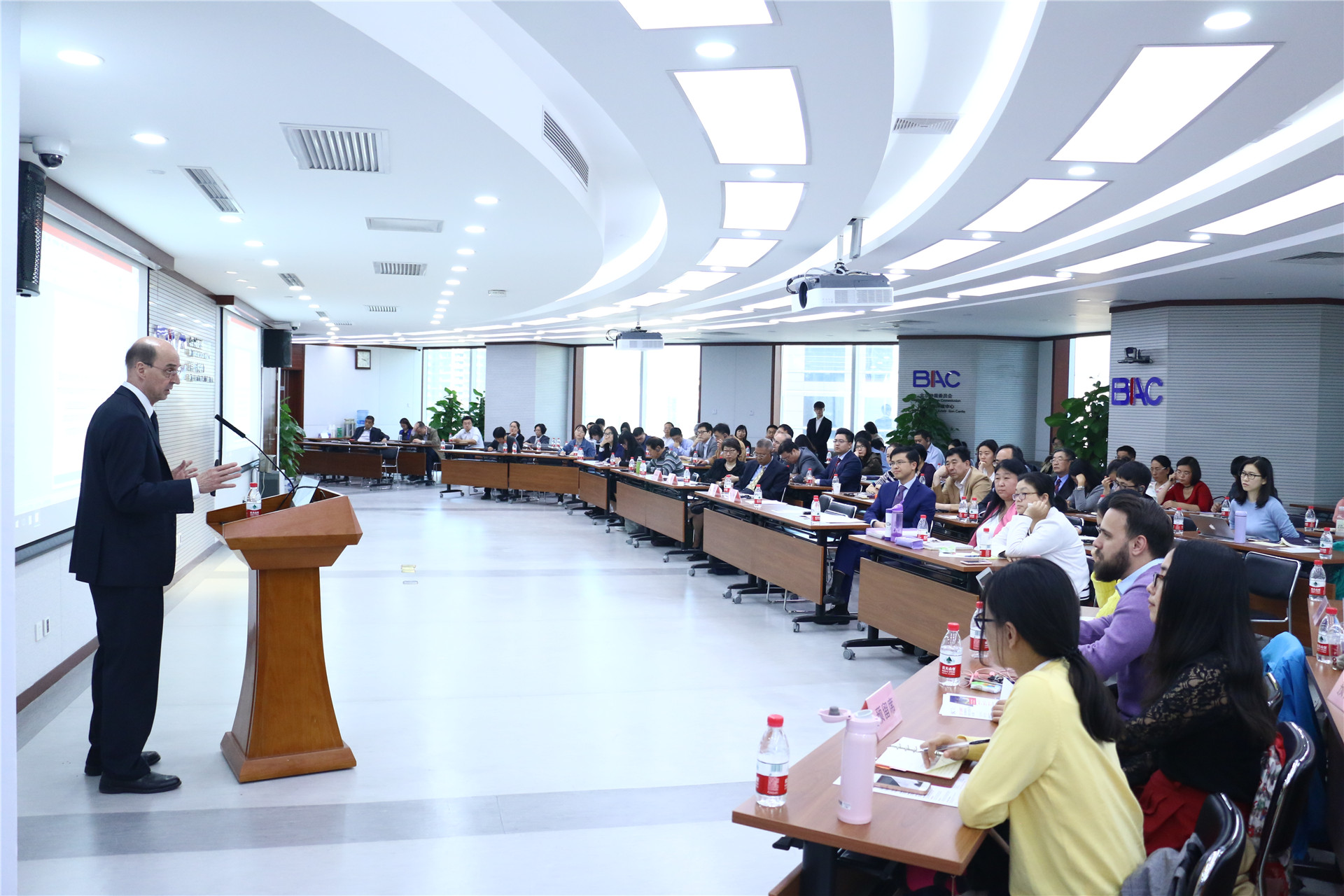 |
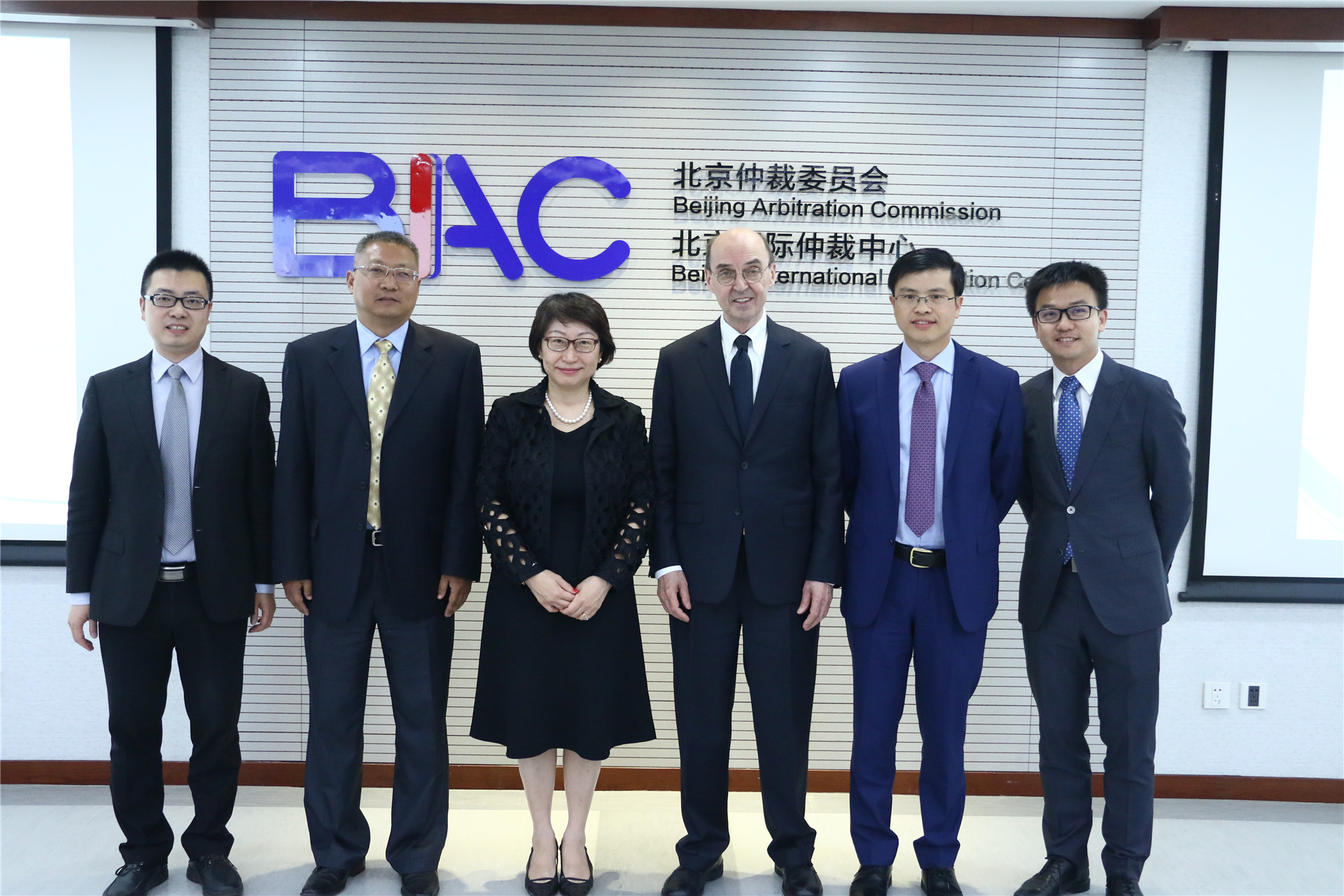 |
|
The forum |
Group photo |
Following the speech, the audience had active exchanges with the speakers on issues such as the applicable law, the enforcement of arbitral awards, and the influence of rulings of courts at the seat of arbitration on arbitral awards.
International investment arbitration has attracted sustained attention of the Chinese arbitration circle because of its features in legal structure, law application, jurisdiction, composition of the arbitral tribunal and so forth. The BAC has also been paying attention to investment arbitration, and expects to enrich international investment arbitration practitioners’ experience as well as to assist participants in investment arbitrations and Chinese main arbitration institutions to have a louder voice in the high end international dispute resolution service market, by way of inviting internationally famous investment arbitration practitioners to share their experience and to analyze the hotspots. The BAC welcomes colleagues interested in diversified dispute resolution to continue to pay attention to the BAC’s website and WeChat platform for more information.